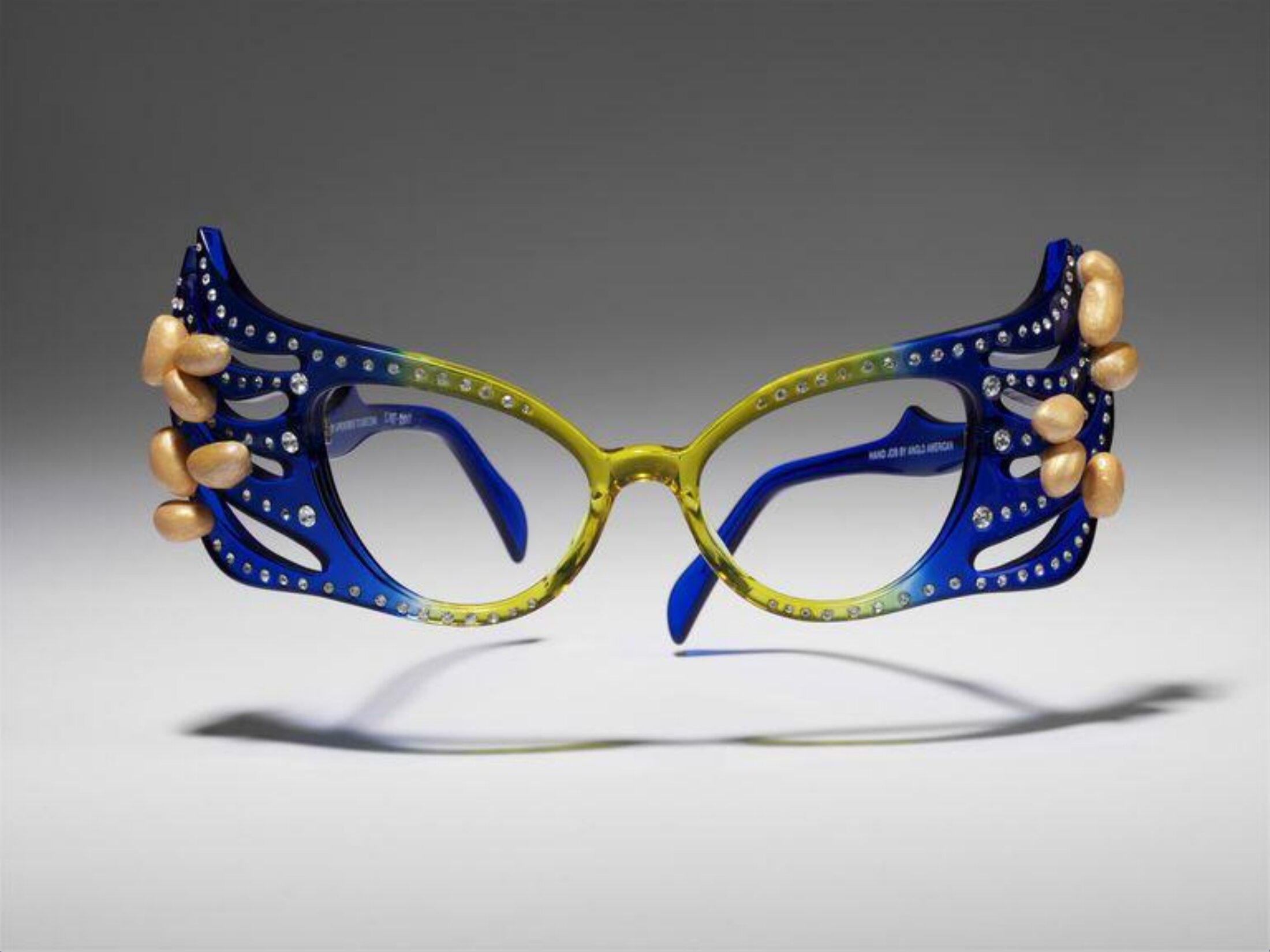In Memoriam
John Barry Humphries AO CBE, 17 February 1934-22 April 2023
***
‘You mustn’t judge Australia by the Australians.’
***
It was not just Barry Humphries who died on Saturday.
It was that towering skewerer of pomposity and humbug, and gate-crasher of Royal boxes, Dame Edna Everage. It was Australia’s roving cultural attaché and Australian Minister for the Yartz, Sir Les Patterson. It was pathetic Melbourne suburban pensioner, Sandy Stone. It was colonial hellraiser Barry McKenzie. It was a host of other characters, who burst forth from Humphries’s determination to be different in a world that worshipped conformity, and his witheringly sharp eye for the absurdities of the human condition. …
Over eighty years, from his schooldays, Humphries reflected Australia to Australians, and to the wider world. It’s no coincidence that Dame Edna and Sir Les became ever more larger presences, ever more confident, ever more brash, as the Australia for which they held transformed from the semi-colonial backwater of Humphries’s solidly middle-class suburban youth, to the influential, complex, and independent-minded nation it is as he leaves it. …
Australians may not always have appreciated just what Barry Humphries showed us to ourselves through his art. But this unique and complex man, Dame Edna and the entire extended Humphries character family, have gone, never to return, just when they are needed more than ever. Humphries and his wonderful art will be sorely missed in a dark age of humour, in Britain as much in Australia, when even comedians are afraid to lampoon pretension, pomposity and humbug in the face of a dangerous new puritanism of thought and expression that loathes dissent, let alone being ridiculed.
— Terry Barnes, The Spectator, 22 April 2023
***
***
‘I love making an audience gasp. I don’t crave the sound of applause. I crave the sound of sharply indrawn breath. That’s a good sound.’
— Barry Humphries
***

Some weeding out imperative, deaccessions inevitable. I’ve started with books; I’ll end up with people and finish with me.
***
Why does no one dress for dinner at Claridge’s any more?
Barry Humphries
F. Scott Fitzgerald declared in an excellent late story that ‘the second half of life is a long process of getting rid of things’. It is certainly what I am striving to do. I have far too much stuff so I’ve decided a little culling is needed. Some weeding out imperative, deaccessions inevitable. I’ve started with books; I’ll end up with people and finish with me.
I kneel on the floor of my book room with a large cardboard box at my side. Do I really need all those George Meredith novels? Edgar Saltus is harder, but will I miss those duplicates of Purple and Fine Women and The Pace That Kills with the variant dust-wrapper and the misprint on page 43? My shelf of the works of Philip Thicknesse, that querulous 18th-century gentleman, contains nearly all of his 24 books, and if I were forced to sell them I could never sacrifice The Valetudinarians Bath Guide, which contains valuable information on the exorcism of gallstones, and an account of Mrs Mary Toft of Godalming who claimed that she gave birth to 15 rabbits; an assertion Thicknesse plausibly supports. Whatever the demands for space in my book room, I cannot banish my Marmaduke Pickthall, or a single one of my 15 copies of the first edition of The Wooing of Jezebel Pettyfer, which Meredith praised with the mysterious disclaimer: ‘It ought never to have been written.’ Not seldom, when I surrender a book to a rascally dealer, I return to his shop and buy it back.
CDs breed prolifically, or did. Now the young have never heard of them, and nor have their parents, who have also never heard of 78s. But should I keep all those symphonies by Siegfried Wagner? Or the chamber music of Charles Koechlin, some of which is still trapped in its cellophane carapace? And the DVDs. My Sacha Guitry movies, bought in Paris, have to stay, but my much-played series of films starring Chucky, the malevolent doll, may have to be deaccessioned.
Clothes also multiply in bulging wardrobes, and when I have wrestled enough with that pesky top
button on a pair of favourite pants, I am learning to cast the garment aside. In New York two decades ago, I bought on a caprice a blue ‘unstructured’ suit by the designer Issey Miyake. It never worked or justified its price. I call it my ‘Issey Mistake’ and you’ll find it soon in the charity shop.
Once at a party at the Garrick, I encountered a member in a really beautiful suit. When, in breach of an ancient and rarely enforced club rule, I complimented him on his excellent taste, he laughed and told me he’d picked it up for nothing at an Oxfam shop. Opening his jacket, he displayed the label stitched in his inside pocket. There was the tailor’s name, and beneath it, my own. That beautiful cashmere suit had once been mine. I was tempted to reclaim it on the spot.
Very recently a kind friend from New York asked us to dinner at Claridge’s. It has been magnificently enlarged and redecorated, but not, thank God, ‘re-imagined’. The dining room, however, came as a shock. Who were these people, sulky of visage, lounging at tables in tracksuits and T-shirts? The service was impeccable, but my fellow diners looked like they were on their way back from the gym. Later, ruthlessly going through my wardrobe, I came upon a grubby T-shirt and a pair of torn denim shorts. As I flung them into the rubbish box, I had second thoughts. ‘Hang on Barry!’ a voice said. ‘Don’t chuck those away. Someone might invite you to Claridge’s.’
Last week I took a look at the Cézanne show at that most inhospitable picture gallery, Tate Modern. I’ve never got the point of Cézanne. Those bathers are woeful: badly drawn, uncomfortably arranged, and grotesquely overpraised. After he died, a few painters in Paris decided his mistakes and infelicities were virtues and that dead-end movement Cubism was born. English second-raters like Roger Fry puffed up his reputation to the level of Modern Master, so that even today you can see baffled art lovers standing in front of his pictures struggling to feel the ‘significant form’, which is rumoured to reside in these very ordinary paintings.
Off to Australia for Christmas. I will avoid church on the big day. Last year at St Andrew’s Cathedral in Sydney, the bishop called the hymns ‘songs’, invited applause, and addressed the congregation as ‘boys and girls’ as if he were making the announcements on a Virgin aeroplane. The prayers and the order of service were unrecognisable and had been tweaked so they could offend no one – except God.
I remembered as a kid having to stay awake until 11 p.m. when it was dark enough for Carols by Candlelight, and, at least two weeks before Christmas day, finding where Santa had hidden my presents. Clearing out my parents’ house years ago, I discovered a cache of obsolete silver sixpences still bearing the rock-hard residue of Christmas pudding. Decimalisation has long since killed that delightful tradition. However, my client Dame Edna still observes the ritual using expired credit cards. Another year looms and I consider myself blessed and indeed grateful that I have lost no faculty you need to hear about. So far, no waiter or maître d’ has uttered the words I dread to hear: ‘Would sir like his Dover sole puréed?’
— The Spectator, 17 December 2022
***
***
In Loving Memory of Myself
Barry Humphries
11 April 1981
The recent passing of Sir Barry Humphries at the Portuguese resort of Estoril, though it received no more than a small paragraph tucked away with the international news on page nine of this newspaper, must have revived many memories among our older readers.
Although Sir Barry last appeared on the Melbourne stage more than 30 years ago in a less than successful entertainment of his own devising entitled Tears Before Bedtime, there are still elderly theatre-goers both here and abroad who can remember him in his heyday.
Our quondam critic Ms Bronwyn Praxitiles was perhaps less than generous when she referred to Sir Barry’s final offering as “arguably, the sad, incoherent, and more often than not inaudible ramblings of a self-indulgent has-been”. It is true that Sir Barry, at that late stage in his career, and though still in robust mental health, was unable to mount the stage unassisted, and that his once popular turn “Dame Edna” had become a repulsive hag which filled his dwindling audiences with awe and revulsion rather than mirth.
Perhaps Sir Barry’s refusal to produce work of social relevance and his quaint old-fashioned belief that his first duty was to inspire laughter, accounted for the decline in this artiste’s popularity in the last decade of the 20th century, though he still enjoyed a loyal following among the die-hard reactionaries who attended his clandestine performances.
By then his public appearances were banned by the Builders Labourers’ Leisure Party, and for many years the Australian Democratic Republic Arts Squad imposed severe penalties upon his sentimental and revisionist supporters.
Barry McKenzie, Sir Les Patterson, and his other scabrous attacks on the integrity of the Australian working class ethic, however, earned him the ultimate disfavour of the authorities, and his continued reluctance to accept the title “King of Moomba” finally forced him into permanent exile abroad.
He has since resided in the tarnished splendour of a Lusitanian Spa haunted by the obloquy of the Australian working class he so long ago betrayed for a mess of pottage.
One wonders what he would make of the cultural renaissance which is sweeping Australia at the moment, or our internationally acclaimed award-winning computerised puppet theatre which is currently putting Australia unequivocally on the map, in terms of sheer bloody, global, creative input across-the-board per se currently.
When one thinks of the giant strides Australian entertainment has taken since Humphries’ day, viz the Sir Norman Gallagher Omega site strikers relief massage-parlour and casino complex, it is hard to imagine what relevance old entertainers like Humphries and his ilk would have to 21st century audiences.
Sir Barry was knighted by King Charles III for his services to the British Gladiolus Society and is survived by innumerable wives, great-grandchildren and creditors.
Source:
- Goodbye, possums: Barry Humphries’ obituary in his own words, The Sydney Morning Herald, 26 April 2023
***


